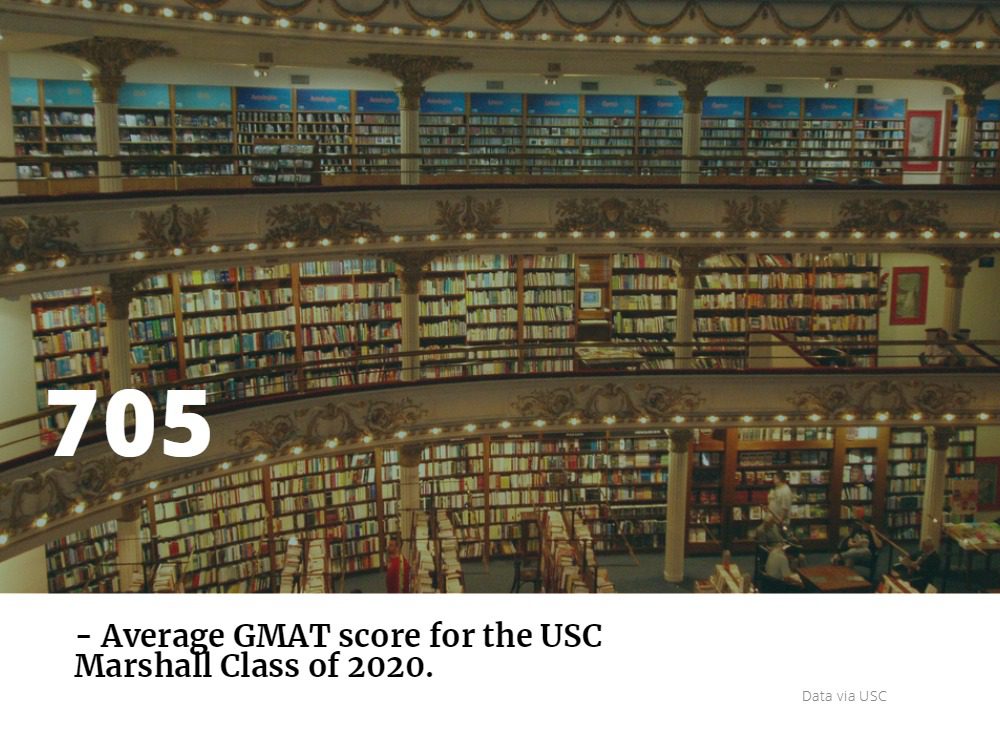The incoming full-time MBA Class of 2020 at the USC Marshall School of Business is making headlines across the country thanks to preliminary class profile information shared late last month. Graduating exactly 100 years after the business school’s first cohort, this year’s incoming class will go down in the history books as the first cohort at a top-ranked business school to feature more women than men. The incoming class will be 52 percent women, up from just 32 percent last year.
The USC Marshall MBA Class of 2020 has reached gender parity while most other leading business schools continue to hover at or below 40 percent, stubbornly trailing other graduate degrees including those in medicine and law, where gender parity has become de rigeur. Accrding to the AACSB, between 2012 and 2017 the number of women working towards full-time MBA degrees was below 38 percent.
Even without history-making demographics, the new 2020 cohort is a diverse group. Though the majority (25 percent) had an undergraduate major of business/commerce, the class also includes students with undergraduate degrees in engineering/computer science (18 percent), the humanities (17 percent), and economics (16 percent).
They are diverse in other ways as well. International students make up 30 percent of the incoming class and hail from 31 different countries around the world, among them Iran, Israel, Ethiopia, Egypt and Pakistan. Among U.S. students, underrepresented minorities comprise 21 percent, up from 16 percent last year.
Of the 2,017 applications received, 221 were accepted, resulting in an acceptance rate of 28 percent. Twenty-eight is also the average age of the incoming class, with students bringing an average of five years work experience with them. And in terms of academic stats, incoming students had an undergraduate GPA of 3.50 and a GMAT score of 705, both also records for the school.

As for how Marshall shattered the women’s enrollment record having not even reached 40 percent in prior years, the school points to a fortunate confluence of many factors. Unlike many peer schools where overall application value was flat or down, Marshall saw a slight uptick in applications. It also recently implemented a new customer service relationship (CRM) program to help admissions staff more effectively connect with applicants. And it continued two efforts specifically targeted toward prospective female students—a special welcome weekend for admitted women and personalized outreach by female student ambassadors to prospective female applicants. Together these helped result in a significantly higher yield, or percentage of admitted students who enroll, among women.
An overall look at the USC Marshall MBA Class of 2020 already reveals the ways more women in a program can have a broader impact on the school and the students’ future careers. “This year’s applicant pool was the strongest in our program’s history,” commented Marshall Assistant Dean and Full-Time MBA Director Evan Bouffides. “They brought the highest GMAT score and the highest average GPA. The women in particular were extraordinarily well prepared.”
There are many theories about why the representation of women in MBA programs has historically remained low. Different studies have looked at factors like the time it takes to complete an MBA degree, work experience required, and the overall return on investment. Reasons may also reflect the gender pay gap, which makes the return on investment significantly lower for women, who studies show earn anywhere from 3 to 36 percent less than their male counterparts.
YOU MAY ALSO LIKE: The Best U.S. Employers for Women
Thankfully, schools like USC Marshall understand the benefits that women MBA graduates can add both to the school and workforce. In addition to more proactively seeking female applicants as part of the admissions process, the school has also increased programming focused on women one students get on campus. By enrolling more women in their MBA classes, business schools like Marshall stand to move the needle in the larger business world as well. Gender equity at the MBA class level results in a more diverse talent pool for employers, which can ultimately lead to a more diverse workforce overall.
“With more than 50 percent of our 2020 class women, it gives us a talent pipeline that employers are hungry to tap into as they go about increasing the diversity of their executive staffs,” said Mark Brostoff, assistant dean and graduate career services director at Marshall. “Recruiters are very happy with this great news.”
This post has been republished in its entirety from its original source, metromba.com.





